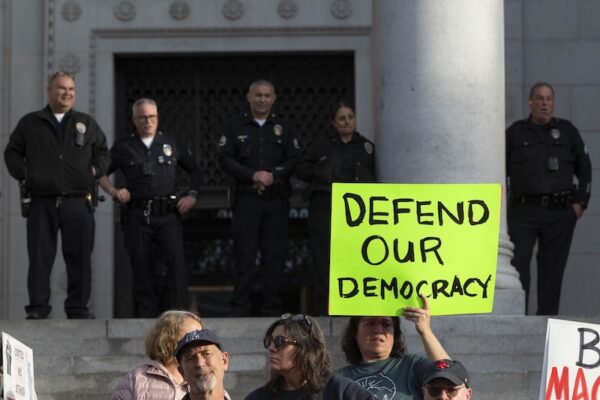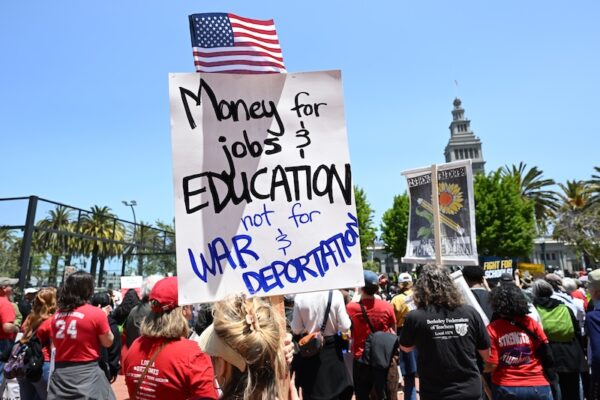Which Turkey policy will prevail?
The rising tensions between Turkey and Germany force politicians on both sides to make their final decisions. In this “politics of brink,” the most crucial thing is to keep one’s emotions under control. Failing to respond to attacks, however, means to accept defeat in advance.
Even after the federal elections in Germany, the fact that Turkey’s 2019 election campaign will start early will make it difficult to de-escalate the tensions between Berlin and Ankara. We already know that the month of October will be quite busy since German politicians, who have been trying to mount “economic pressure” on Turkey, already announced that they would be seeking to suspend the Turkish EU membership bid at the leaders summit next month.
Turkey’s response to Germany’s actions was to pick a move from Berlin’s own playbook. Earlier this week, the Turkish Foreign Ministry warned Turkish citizens who lived in Germany or were planning to visit that country to remain vigilant. The political atmosphere in Germany, the ministry maintained, had been “under the growing influence of far-right and even racist rhetoric” for some time. At the same time, Turkey criticized the German authorities for failing to thoroughly investigate arson attacks in predominantly Turkish neighborhoods and arbitrarily subjecting Turkish citizens to ill treatment at airports. The fact that Germany had not delivered justice to the Turkish community regarding the NSU murders after 380 hearings was mentioned as an example.
German politicians, who cannot get enough of warnings and expressions of concern themselves, were offended by Turkey’s claim that their country was not safe. While Chancellor Angela Merkel issued a diplomatic response by saying that Germany was not arresting journalists, her Social Democratic rival Martin Schulz openly embraced populism: “The government in Ankara is crossing the line. Germany is not a country that will accept being humiliated by Turkey.”
Clearly, neither country should humiliate the other. But one cannot help but wonder what the German authorities seek to accomplish by failing to punish NSU murderers after 380 hearings while calling on Turkish courts to release German citizens who are being held on terror charges. Nor is it clear why extradition requests for PKK and Gülenist Terror Group (FETÖ) terrorists are being systematically declined. Without posing such questions, the two countries cannot form a relationship as equals.
Meanwhile, the German government’s Turkey policy – which appears to be an effort to isolate and contain the country – has faced criticism from within the European Union. Most recently, Greek Prime Minister Alexis Tsipras came out against Germany’s push to shut the door on Turkey: “It would be a strategic and tactical mistake for the European Union to suspend membership negotiations with Turkey. It would be wrong to close the door.”
Needless to say, Greece stands to lose more than other EU countries if membership talks with Ankara come to an end. And we are not just talking about illegal immigration and terror threats either. The Greeks believe that Turkey’s EU membership bid makes it easier for them to protect their national interests in the Aegean Sea and in Cyprus. In other words, Greece’s hand would be severely weakened if Turkey ends up severing its ties with the European Union. Moreover, Athens understands all too well that Turkey has been a buffer zone between Eastern Europe and the wave of instability emanating from the Middle East.
It appears that two competing policy proposals on Turkey will be clashing at European capitals ahead of the 2019 elections. To be clear, neither camp would like to see President Recep Tayyip Erdoğan being re-elected to govern Turkey under its new system of government. To accomplish this goal, the first group of politicians and policymakers recommend twisting Turkey’s arm by imposing economic sanctions on Ankara along with other forms of pressure. To be clear, the Justice and Development Party’s (AK Party) opponents at home are probably hinting to their “friends” in Europe that punishing the Turks could pay off. Advocates of the second road map, however, warn that allowing Turkey’s ties with the European Union to be severed would be an irreparable strategic loss. “Let us not overdo the pressure we’d like to mount on Erdoğan,” they argue, “so that we won’t lose Turkey altogether.”
Over the next couple of months, Turkish policymakers should reach out to the supporters of Option II in order to engage in a detailed discussion about Europe’s long-term interests and how they relate to their cooperation with Turkey.
This article was first published in Daily Sabah on September 14, 2017.




















